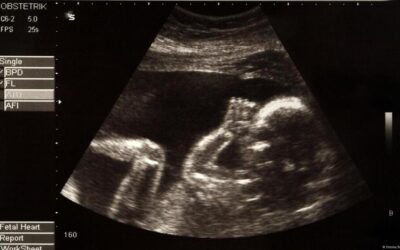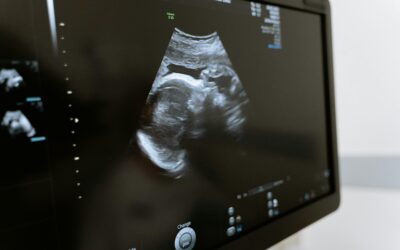Key Points
- Pennsylvania’s biology standards ought to include foundational education on early human life development.
- SB 973 and HB 606 create a healthier Pennsylvania, where those who will raise the next generation will be equipped with knowledge to make informed and healthier choices, resulting in healthier pregnancies and healthier children.
- SB 973 and HB 606 would include ultrasound videos showing vital organ development over seven specified gestational ages in the biology curriculum.
- The biology curriculum would also include high-quality, computer-generated animated renderings of an unborn baby’s development inside the mother’s womb and instruction on the effects of drugs, alcohol, and tobacco on the mother and child.
SUMMARY
As science and technology continue to advance, school curricula must keep up. Recent legislation, Senator Michele Brooks’ SB 973 and Representative Joe Hamm’s HB 606 would ensure Pennsylvania students receive early human life development education. This would empower them with foundational information about life and wellness and help them to make informed decisions to have healthy pregnancies when the time comes.
These bills would have the biology curriculum include ultrasound videos showing vital organ development over seven specified gestational ages in the biology curriculum. The biology curriculum would also include high-quality, computer-generated animated renderings [i.e., a scientifically accurate motion picture] of an unborn baby’s development inside the mother’s womb and instruction on the effects of drugs, alcohol, and tobacco on the mother and child. Students can watch an unborn baby grow from the moment he or she is conceived until the time he or she is born.
Advancements in science and technology have made it possible to view the miraculous growth of babies inside their mothers. According to the Endowment for Human Development, unborn babies have beating hearts and detectable brain waves, fingers, and toes, by nine weeks of pregnancy. At this time, a baby can also suck its thumb, open and close its jaw, stretch, and sigh. By just 10 weeks, these little lives are making breathing motions and can yawn. With this new legislation, public school students will better understand the miraculous progression of human life from conception to birth.
Knowledge about prenatal development—such as the significance of fertilization, implantation, or milestones like thumb-sucking at 10 weeks—equips high school students to make informed health choices that prepare them for healthy pregnancies after high school. For example, understanding critical periods (e.g., when organs form) can emphasize the importance of prenatal care, nutrition, and avoiding harmful substances, leading to better outcomes for future children.
Additionally, learning about early development fosters health literacy, enabling students to understand medical information related to pregnancy. This includes recognizing the importance of early prenatal visits and how environmental factors affect fetal development.
Early human development education is a natural fit with existing biology materials. Many biology curricula already include topics like cell division, genetics, and organ systems. Early human development education integrates these concepts in a real-world context, reinforcing learning outcomes. Early human development, from fertilization through embryonic and fetal stages, is a core aspect of human biology. Teaching it provides students with a comprehensive understanding of how life begins and progresses, aligning with biology’s goal of exploring life processes.
Students learning in public schools throughout the Commonwealth deserve to receive medically and scientifically accurate information about early human development of life inside the womb.
TAKE ACTION
Take Action: Ensure The Best Education for Students Through Early Human Development Education
Act Now
ADDITIONAL ARTICLES
Related Articles
Supreme Court Upholds State Rights to Defund Planned Parenthood: A Victory for Life
In a significant victory for pro-life advocacy, the U.S. Supreme Court delivered a crucial decision in the case of Medina v. Planned Parenthood South Atlantic, affirming that states possess the authority to determine which providers are qualified to receive Medicaid...
Celebrating Life: Pro-Life Leaders, Pregnancy Centers, and Students Gather at Capitol for “Life Month”
Pro-life leaders, student advocates, and pregnancy resource center staff came together today at the Pennsylvania State Capitol to commemorate June as Life Month, recognizing the third anniversary of the U.S. Supreme Court’s historic Dobbs decision overturning Roe v....
Lancaster Teen and Mother Charged—But the Root Issue Is the Abortion Industry’s Deception
A heartbreaking update has emerged in the tragic Lancaster County case we first reported—a teen and her mother have now been charged with concealing the death of a child after the teen took abortion pills at home, gave birth alone, and buried the baby’s body in their...
Why What Happens in New York Matters for Pennsylvania
At Pennsylvania Family Institute, we often hear a familiar refrain from those pushing harmful legislation at the Capitol: “But our neighboring states are already doing it…why shouldn’t we?” It’s the same argument used to push casino gambling here two decades ago: that...
Supporting Women, Saving Lives: Pregnancy Care Centers Showcased at the Capitol
The Pennsylvania Pregnancy Wellness Collaborative (PPWC) brought together medical professionals, pregnancy resource center leaders, and community advocates this week for its second annual Day of Advocacy at the State Capitol. The event, held at the Capitol Media...
PA Family Joins Call for Federal Investigation of Abortion Pill
Join us at the 5th annual Pennsylvania March for Life on Monday, September 22! Help us be a voice for the voiceless. Visit www.pafamily.org/march for more info. *** HARRISBURG, Pa. – Pennsylvania Family Institute has signed onto a national coalition letter urging...






